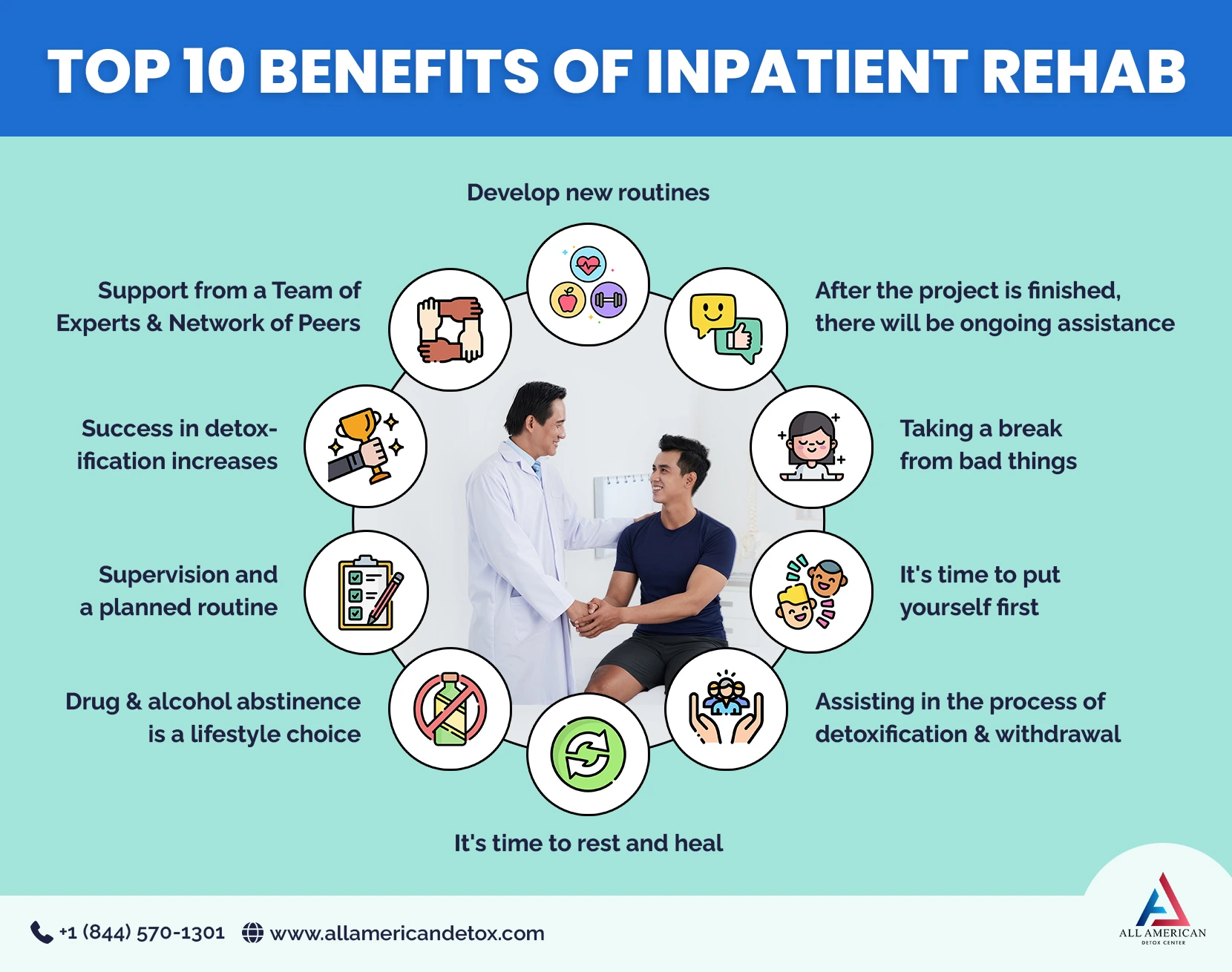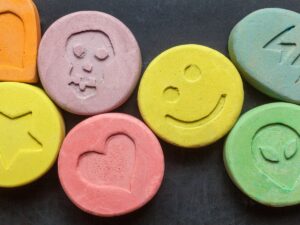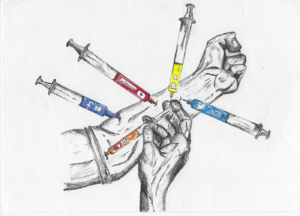A patient’s rehabilitation can’t begin without accepting the decision to alter their connection with drugs. Detox and withdrawal are challenging, but learning to prevent recurrence is more difficult. For individuals suffering from severe addictions, a residential inpatient treatment program may help them regain their concentration and energy, therefore assisting them in remaining clean and decreasing their chance of relapse. The most outstanding addiction treatment programs tailor their approach to meet the specific requirements of each patient. The intensity of a patient’s drug consumption disorder is significant in determining which addiction treatment program is best for them. In this post, Let’s discuss the advantages of residential inpatient drug rehab.
What Is An Inpatient Rehab?
Inpatient rehab is a service that allows patients who are suffering from drug abuse to stay in a comfortable environment while they detox from drugs. Typically, inpatient rehab lasts for at least 28 days, during which patients are accommodated in a treatment facility. This facility offers a safe and secure environment for patients who need more intense therapy than outpatient care.
You will have quick access to medical and clinical specialists throughout the initial phases of rehabilitation if you choose residential inpatient treatment. Patients in an inpatient setting are given daily routines to help them feel more organized. As a result of this setting, people hooked to drugs are not pushed to use due to their difficult home situations. Inpatient therapy allows people to devote their time and attention to becoming clean and living a healthy lifestyle.
Top 10 Benefits of Residential Inpatient Rehab
An inpatient rehab program can provide recovering addicts with a safe detox. let’s look at 10 important advantages of a drug rehab program for you or a loved one.

-
Supervision and a planned routine
Those enrolled in residential inpatient programs are given relatively limited time off, and patients are too preoccupied with their scheduled routine to fixate on their preferred drug. With this approach, patients are less likely to return to their old behaviors after treatment.
Health care providers administering the programs may also see the vitals and other information they are monitoring. Because of their training can quickly determine whether a patient is not responding to therapy and needs more care. If a patient’s condition changes, their individualized treatment plan may be rapidly modified.
-
It’s time to put yourself first
Following a residential program allows one to take a break from their daily routine and concentrate only on one’s well-being. This is an excellent chance for someone to address the issues in their lives that are causing them concern. It is easier to deal with addiction and everyday life when one has enough spare time.
-
Success in detoxification increases
In times of weakness, patients who have completed outpatient therapy find it simpler to reach out to old acquaintances and return to old behaviors. Patients are more likely to succumb to relapse when they return to the same setting where they used drugs or alcohol each evening. Relapse triggers and availability to their drug of choice are not present at a residential treatment facility.
-
Taking a break from bad things
Addiction treatment sometimes necessitates removing oneself from the company of others who are abusing alcohol or drugs. In the early days of recovery, this may be a significant challenge. An opportunity to get away from harmful influences and concentrate on coping skills that will be useful after therapy is provided by residential treatment.
-
Support from a Team of Experts and a Network of Peers
24-hour medical assistance is offered to those in an inpatient drug rehabilitation program. At first, withdrawal symptoms may derail progress toward recovery, which is critical. Patients who know they may get support if they need it may concentrate more on their recovery.
In addition, every patient in an inpatient drug rehab center has the same hardships. Lifelong sobriety is the unifying objective shared by all of them, in residential treatment programs, recovered patients often form close and supportive bonds with people who have been there.
-
Assisting in the process of detoxification and withdrawal
Patients who have been consuming drugs for an extended period may find it particularly difficult to cope with detox and withdrawal symptoms. Because of this, many individuals with drug abuse issues strive to postpone detoxing as long as possible.
Symptoms of withdrawal vary depending on the kind of substance that was overused. Body pains, vomiting, diarrhea, temperature, and elevated blood pressure are signs of drug withdrawal. Anxiety, frustration, and exhaustion are among the signs of meth withdrawal.
-
It’s time to rest and heal
Addiction is a severe problem for addicts and their loved ones. Everyone participating in therapy benefits from the chance to work through and heal old wounds. The most acceptable gift you can offer someone is your time and space.
-
Develop new routines
Inpatient rehab’s format encourages patients to develop healthy coping mechanisms in place of substance abuse. Making your bed as soon as you get up every morning is one example of learning how to play an instrument, and success is more likely if you work on developing new habits.
-
Drug and alcohol abstinence is a lifestyle choice
The continual temptation to visit a liquor shop or a dealer’s residence to pick up narcotics is removed in an inpatient drug rehab program. At first, cravings might be challenging, but they are made much more difficult when drugs and alcohol are easily accessible. A person’s chances of surviving the early stages of addiction are significantly improved if they do it in a sober and encouraging environment.
-
After the project is finished, there will be ongoing assistance
After therapy, a decent program will provide support for graduates. A follow-up visit or phone contact with a staff member may be necessary for some instances. The aftercare program serves as a lifeline for those who have completed residential treatment and are still adjusting to life outside the facility.
You Can Also Read About: How Residential Treatment Supports Addiction Recovery?
Conclusion:
Overall, the advantages of residential inpatient drug rehab may be seen at every stage of therapy, and it benefits people on a physiological, mental, and psychological level.
You deserve to reward yourself with a long and healthy life. Allow us to provide you assistance and the luxury of time to concentrate on your wellness. Call All American Detox Center and get in touch for a more extended period. You deserve to live the life of your dreams. Just make a call at our addiction recovery helpline number +1 844-570-1301.






